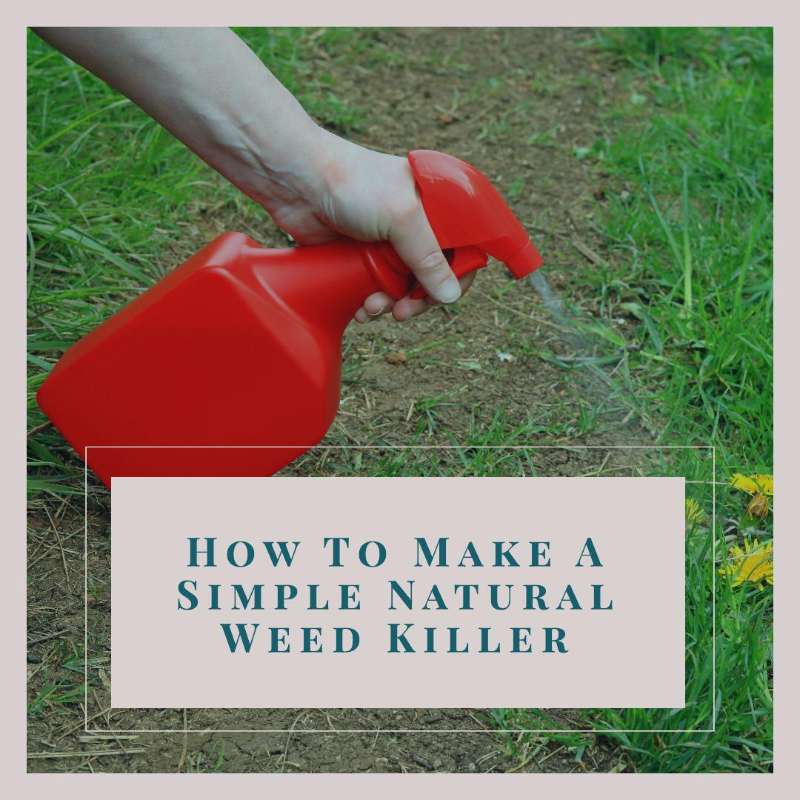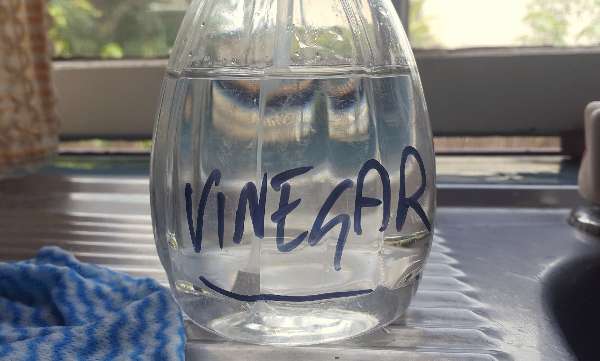How To Make A Simple Natural Weed Killer

Make sure to like Living Green and Frugally on Facebook, Shop at amazon to help support my site and explore our PINTEREST BOARDS for innovative ways you can become self-sufficient.
Maintaining a pristine garden or yard can be a rewarding endeavor, but pesky weeds often seem to have a mind of their own, popping up where they’re least wanted. While commercial weed killers are readily available, many contain harsh chemicals that can harm the environment, pets, and even humans.
Fortunately, there’s a simple and effective solution: making your own natural weed killer using household ingredients. In this guide, we’ll walk you through the steps to create a safe and eco-friendly weed killer that will help you reclaim your outdoor space.
Ingredients:
- White vinegar
- Table salt
- Dish soap
- Spray bottle
- Water
Instructions:
- Choose the Right Vinegar:
- White vinegar, with its high acidity, is the key ingredient in this natural weed killer recipe. Look for vinegar with a concentration of 5% acidity or higher for best results. Avoid using colored or flavored vinegars, as they may contain additives that could be harmful to plants.

- Mix the Ingredients:
- Start by pouring 1 gallon (about 4 liters) of white vinegar into a large mixing bowl or container.
- Add 1 cup (approximately 240 ml) of table salt to the vinegar. The salt helps to desiccate the weeds, making it difficult for them to retain water and ultimately killing them.
- Next, add 1 tablespoon (15 ml) of dish soap to the mixture. The dish soap acts as a surfactant, helping the solution to adhere to the leaves of the weeds.
- Gently stir or swirl the mixture until the salt and dish soap are fully dissolved.
- Transfer to a Spray Bottle:
- Carefully pour the vinegar, salt, and dish soap mixture into a clean spray bottle. A funnel can be helpful for this step to avoid spills.
- Secure the spray bottle’s nozzle tightly to prevent leaks.
- Application:
- Choose a sunny day with little to no wind for applying the weed killer. This ensures that the solution will have time to work effectively before being washed away by rain or diluted by water.
- Shake the spray bottle well to ensure the ingredients are evenly mixed.
- Directly spray the solution onto the leaves and stems of the weeds you wish to eliminate. Be careful to avoid spraying any desirable plants, as this natural weed killer can harm them as well.
- Coat the weeds thoroughly with the solution, making sure to saturate the foliage.
- Wait and Repeat:
- Allow time for the natural weed killer to take effect. Depending on the size and resilience of the weeds, you may start to see results within a few hours to a few days.
- For particularly stubborn weeds, you may need to reapply the solution after a week or so to ensure complete eradication.
Safety Precautions:
- While this natural weed killer is safer than its chemical counterparts, it’s still important to take precautions when handling and applying it.
- Wear gloves and protective eyewear to prevent contact with the solution, especially if you have sensitive skin.
- Keep children and pets away from treated areas until the solution has dried completely.
- Avoid spraying the solution on windy days to prevent drift onto unintended plants.
Creating your own natural weed killer is not only simple and cost-effective but also environmentally friendly. By using common household ingredients like vinegar, salt, and dish soap, you can effectively control weeds in your garden or yard without resorting to harmful chemicals. With regular application and a bit of patience, you’ll be able to enjoy a weed-free outdoor space that’s safe for you, your family, and the environment.